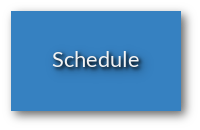field archaeology
Course Description:
Spring 2019: We will work for the U.S. Forest Service conducting a Class II landscape-scale survey in the Manitou Experimental Forest. We will locate, identify, record, and evaluate all cultural resources within the project area. Our focus is on the period, ca. 1850 to 1950 and furthering previous work by CC students identifying the use, ownership, and activities associated with a historic cabin in the forest. The results of our work will be shared with the US Forest Service and the Colorado Office of Archaeology and Historic Preservation. We will document all site-specific characteristics including spatial limits, topographic setting, inferred human activities, and temporal affiliations. We will identify and synthesize land use patterns relating to past settlement and resource utilization. Students will learn survey methods and reporting, foundational skills for all archaeologists.
We will stay at the Manitou Experimental Forest Lodge during week 1 and will camp and make day trips to the forest thereafter. Expect at least an 8 hour day in the field. In the lab, expect most afternoons will be spent collaborating with others and working individually to complete forms, write the report, and conduct the research needed to complete the forms and report.
Fall 2018: We will work for the U.S. Forest Service conducting a Class II cultural resource inventory of the Old Spanish National Historic Trail near Crestone, Colorado and Cochetopa Pass near Saguache, Colorado. A cultural resource inventory documents, through systematic pedestrian survey (walking transects), the material record of past human activity visible on the modern ground surface -- no artifacts are excavated or collected. The information gained from the survey will be systematically documented under the guidelines of the History Colorado Office of Archaeology and Historic Preservation and a Final Report will be submitted to the Supervisor's Office, Rio Grande National Forest, Monte Vista, Colorado. Our work and results protect cultural resources and contribute to interpreting the past.
We will stay at the Baca Campus during Week 2 and at the Upper Crossing Guard Station during Week 3, but return to CC for the weekend in between -- see Course Schedule.
Prerequisite: AN220 (Doing Archaeology) or consent of instructor.
Textbooks and Readings:
No textbooks required. All readings will be on Canvas or Dropbox.
Spring 2019: We will work for the U.S. Forest Service conducting a Class II landscape-scale survey in the Manitou Experimental Forest. We will locate, identify, record, and evaluate all cultural resources within the project area. Our focus is on the period, ca. 1850 to 1950 and furthering previous work by CC students identifying the use, ownership, and activities associated with a historic cabin in the forest. The results of our work will be shared with the US Forest Service and the Colorado Office of Archaeology and Historic Preservation. We will document all site-specific characteristics including spatial limits, topographic setting, inferred human activities, and temporal affiliations. We will identify and synthesize land use patterns relating to past settlement and resource utilization. Students will learn survey methods and reporting, foundational skills for all archaeologists.
We will stay at the Manitou Experimental Forest Lodge during week 1 and will camp and make day trips to the forest thereafter. Expect at least an 8 hour day in the field. In the lab, expect most afternoons will be spent collaborating with others and working individually to complete forms, write the report, and conduct the research needed to complete the forms and report.
Fall 2018: We will work for the U.S. Forest Service conducting a Class II cultural resource inventory of the Old Spanish National Historic Trail near Crestone, Colorado and Cochetopa Pass near Saguache, Colorado. A cultural resource inventory documents, through systematic pedestrian survey (walking transects), the material record of past human activity visible on the modern ground surface -- no artifacts are excavated or collected. The information gained from the survey will be systematically documented under the guidelines of the History Colorado Office of Archaeology and Historic Preservation and a Final Report will be submitted to the Supervisor's Office, Rio Grande National Forest, Monte Vista, Colorado. Our work and results protect cultural resources and contribute to interpreting the past.
We will stay at the Baca Campus during Week 2 and at the Upper Crossing Guard Station during Week 3, but return to CC for the weekend in between -- see Course Schedule.
Prerequisite: AN220 (Doing Archaeology) or consent of instructor.
Textbooks and Readings:
No textbooks required. All readings will be on Canvas or Dropbox.




